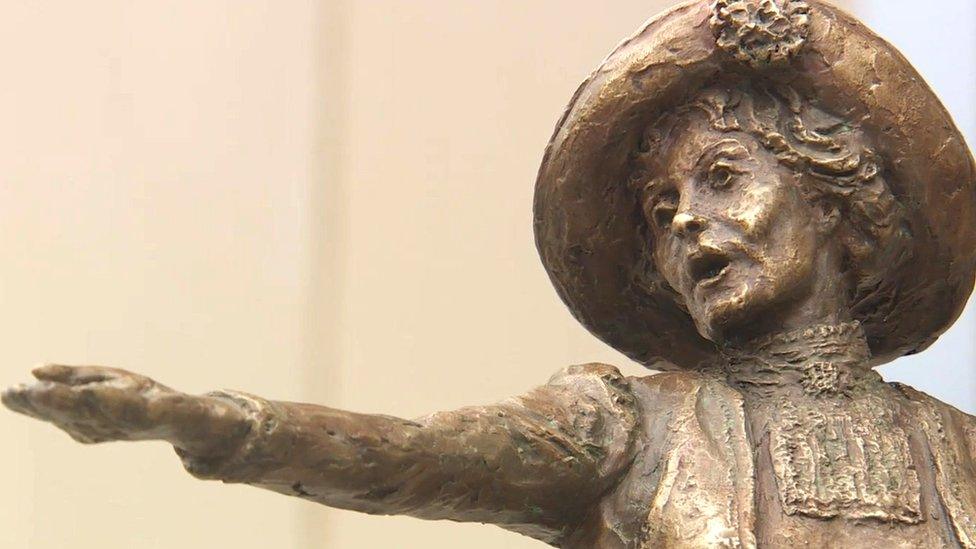Ada Nield Chew: The factory girl who fought for women’s rights
- Published
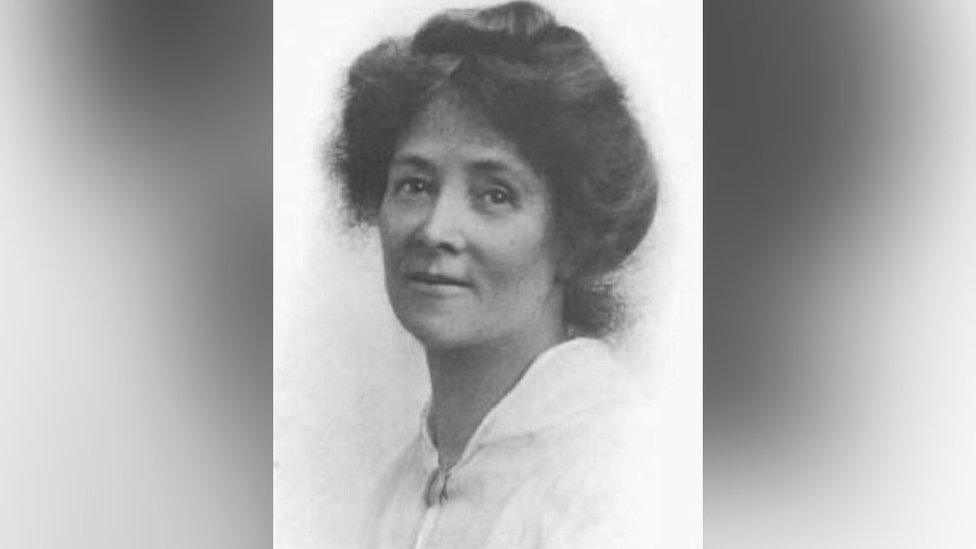
Ada Nield Chew wrote 12 letters to the Crewe Chronicle in the space of four months
In the 1890s, a tailor writing under the pseudonym Crewe Factory Girl complained to her local newspaper about the conditions at work. She went on not only to campaign for the fair treatment of her female colleagues but joined the fight for women's suffrage. Now, campaigners hope there can be a permanent way to remember her in the town where she made such a difference.
In her first letter to the Crewe Chronicle on 5 May 1894, Ada Nield wrote about being paid a "lingering, dying wage" at Compton's Clothing Factory, where she made uniforms for soldiers, police and railway workers.
Signing it the Crewe Factory Girl, it was the first of many notes she'd pen to the editor, who seemed impressed.
"Our correspondent writes a most intelligent letter," he wrote in response. "And if she is a specimen of the factory girl, then Crewe factory proprietors should be proud of their 'hands'."
Born in Staffordshire on 28 January 1870, Ada was one of 13 children and left school at the age of 11 to look after her family, who went on to settle in Crewe.
By 1894 she was working at Compton's and in a series of 12 letters written over four months, she detailed more issues for workers including being charged for tea breaks and materials such as silk and thread, and the disparity between wages earned by the female and male workers.
In her final letter, dated 22 September 1894, the tailor looked back at the impact her campaigning had made. In particular, she spoke about securing a reduction in the cost of materials that workers had to buy - although she questioned if management had secured a new price for materials or had been profiting from staff all along.
"I calculate that at the very least it will mean an extra 10 shillings a year in the pocket of each girl. That will go a long way towards providing her with a much-needed holiday once a year," she wrote.
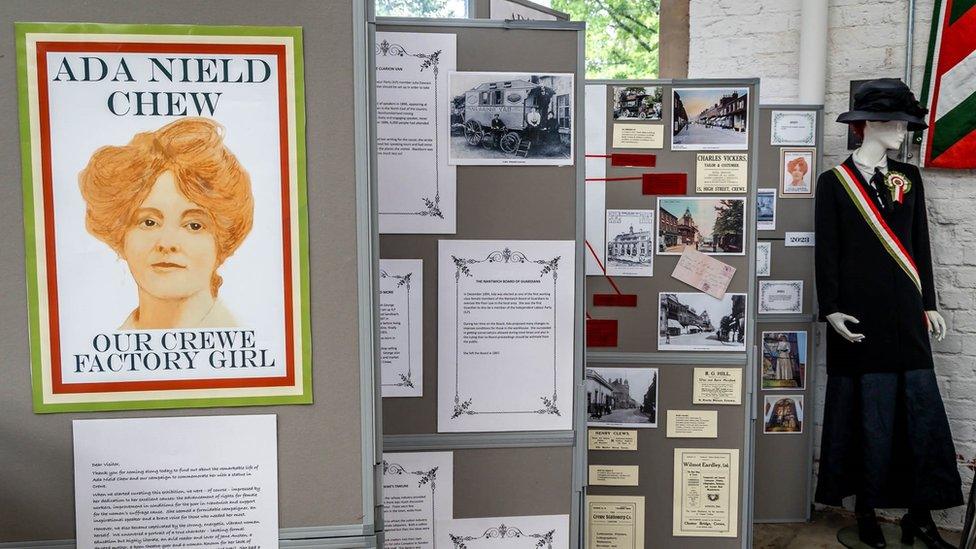
An exhibition about the Crewe Factory Girl is on display in the town over the summer
Ada signed her last letter with her real name, though her identity had already been revealed by that time and she had resigned from the factory, where staff members had also been sacked for being friendly to her.
She turned to politics and became involved with the Independent Labour Party (ILP). She was elected to the Nantwich Board of Guardians, who administered the poor law, and also travelled around the country speaking for the ILP.
After marrying fellow ILP activist George Chew in 1897, she added his surname to her own, and together they had a daughter, Doris, who later wrote a book about her mother's story.
Then a few years later, Ada became involved with the fight for women's suffrage.
Preferring peaceful methods of action, she became a suffragist as opposed to a suffragette and was critical of the Women's Social and Political Union formed by the Pankhursts as she felt it was less relevant to working women and too militant.
During World War One, she was a pacifist and refused to join in with any war work.
After some women secured the vote in 1918, Ada mostly stayed out of politics, setting up a drapery business and travelling the world extensively before her death in Burnley, Lancashire, in 1945 at the age of 75.
A campaign is now hoping to build a statue of her in Crewe so that her memory and achievements can be remembered.
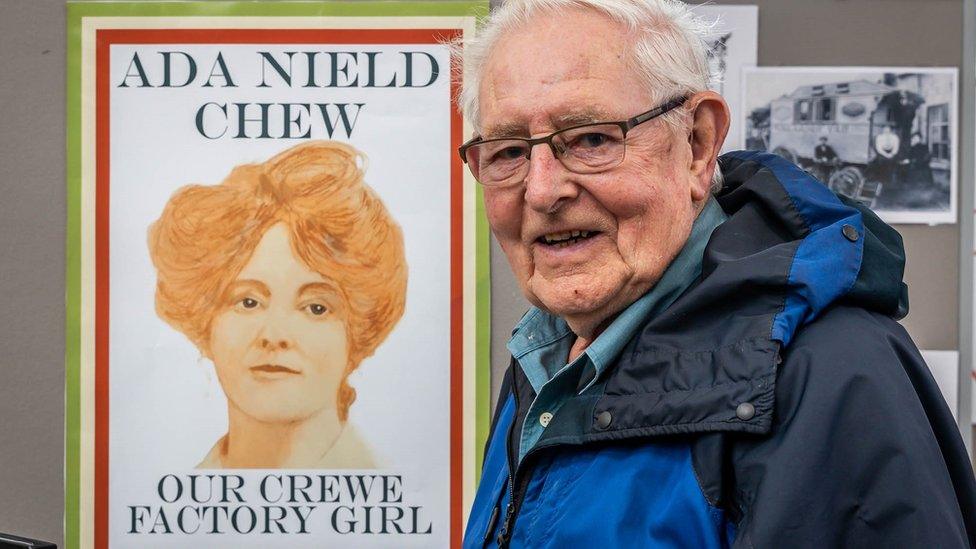
Ada's great nephew Henry Wimby attended the launch
Kate Blakemore, a trustee of A Statue for Ada campaign group, said she was an inspirational figure.
"We do a lot of talks in schools about Ada, [explaining] that you can be a lone voice but it's about getting people to follow you and taking that chance, and you can influence change by doing that," she said.
"She's really inspirational for our younger generation to believe that change can happen."
You might also be interested in
The campaign is looking to raise between £200,000 and £250,000 for the statue through donations and discussions are ongoing about the location.
Designer Hazel Reeves has been selected to create the statue having previously designed others of significant women in history, notably those of Emmeline Pankhurst in Manchester and Elizabeth Wolstenholme Elmy in Congleton, Cheshire.
"We wanted it to be Hazel because what we want to create is that somebody could come to the north-west [of England] and visit these [statues of] three amazing and very different women in history in a day," Ms Blakemore said.
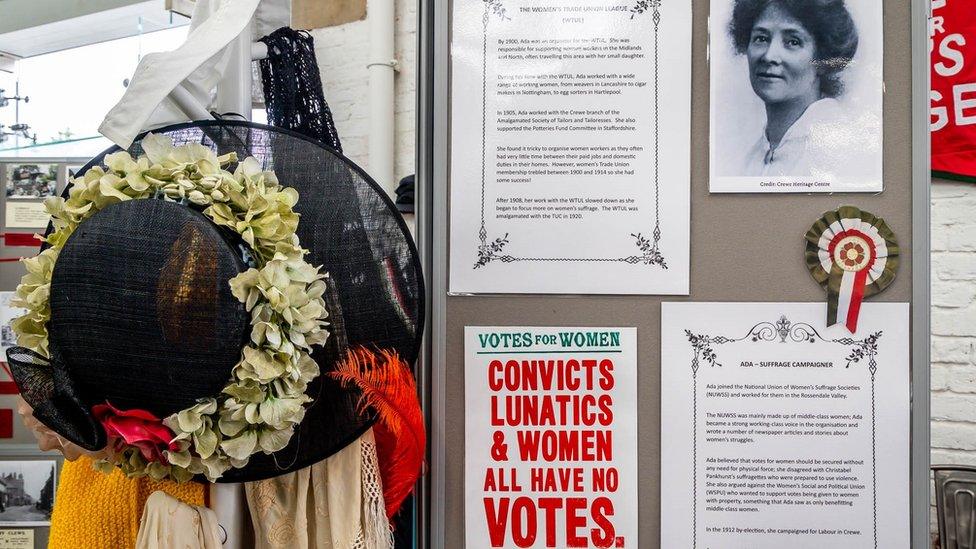
Transcripts of Ada's letters to the newspaper are on display
As part of the campaign, an exhibition is taking place at various locations across Crewe over the summer. It recently launched at the Crewe Market Hall, with Mrs Nield Chew's great nephew Henry Wimby in attendance.
"We always knew about her in the family and how she was trying to improve things for women so I'm really happy this exhibition has finally been created," he said.
"Ada isn't really well known in Crewe. Recognition has been a long time coming."
The exhibition is also dedicated to another campaigning woman from the town, former mayor and councillor Dorothy Flude who died in 2019.
"Dorothy also wanted an Ada statue so this is kind of the legacy of Dorothy as well," Ms Blakemore said.

Follow BBC West Midlands on Facebook, external, Twitter, external and Instagram, external. Send your story ideas to: newsonline.westmidlands@bbc.co.uk, external
- Published8 March 2022
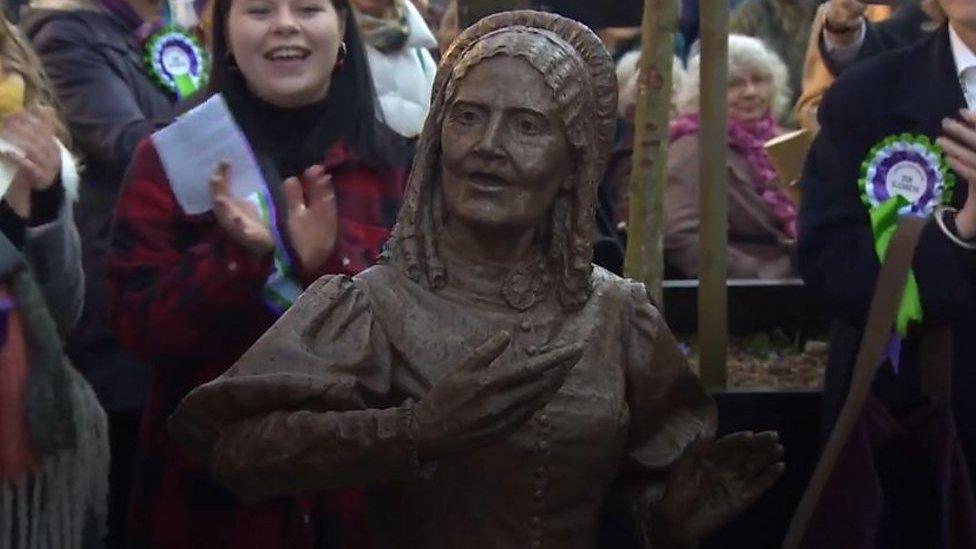
- Published24 October 2021
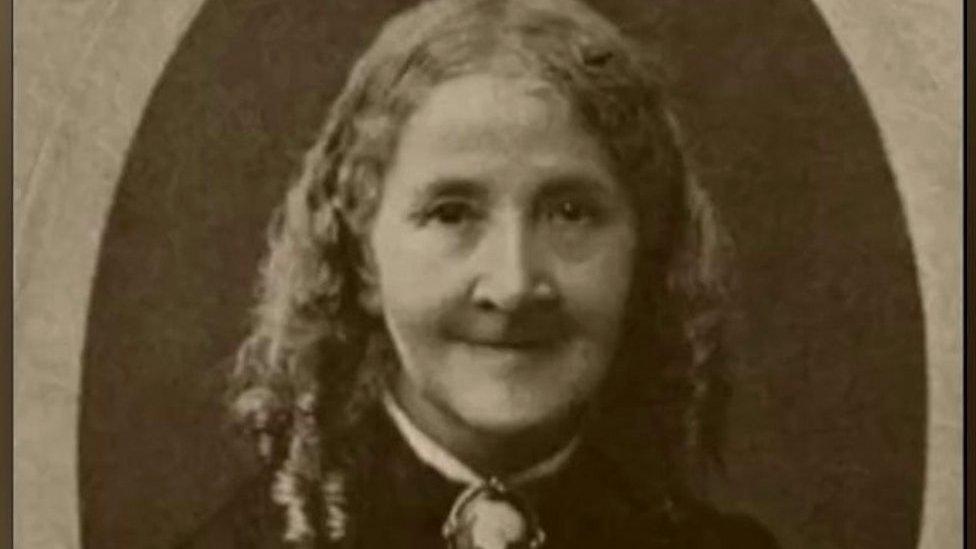
- Published4 April 2017
